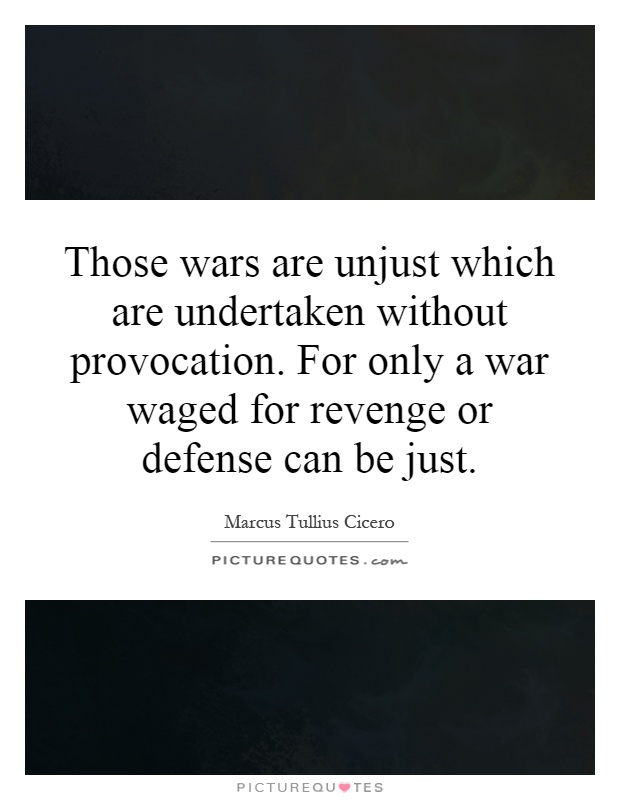Those wars are unjust which are undertaken without provocation. For only a war waged for revenge or defense can be just

Those wars are unjust which are undertaken without provocation. For only a war waged for revenge or defense can be just
Marcus Tullius Cicero, a Roman philosopher, statesman, and orator, was a firm believer in the principles of justice and morality. He believed that wars should only be waged when there is a just cause, such as self-defense or retaliation for a provocation. In his writings, Cicero emphasized the importance of upholding moral values and ethical standards in all aspects of life, including warfare.Cicero's statement that "Those wars are unjust which are undertaken without provocation. For only a war waged for revenge or defense can be just" reflects his belief that war should only be used as a last resort and in response to a legitimate threat. He argued that wars waged without a just cause are morally wrong and unjustifiable. Cicero believed that a nation should only go to war when it is necessary to protect itself from aggression or to seek retribution for a wrong that has been committed.
Cicero's views on just war have had a lasting impact on the development of international law and ethics. His ideas have influenced the way that modern societies think about the use of military force and the principles that should guide decisions about going to war. In the modern world, the concept of a just war is often used to evaluate the morality of military actions and to determine whether a conflict is justified.
Cicero's emphasis on the importance of provocation in determining the justice of a war reflects his belief in the need for a clear and legitimate reason for resorting to violence. He believed that wars should be fought for noble purposes, such as self-defense or the protection of innocent lives, rather than for selfish or unjust reasons. Cicero's teachings on just war continue to be relevant today, as nations grapple with the ethical dilemmas of using military force in a complex and interconnected world.












 Friendship Quotes
Friendship Quotes Love Quotes
Love Quotes Life Quotes
Life Quotes Funny Quotes
Funny Quotes Motivational Quotes
Motivational Quotes Inspirational Quotes
Inspirational Quotes